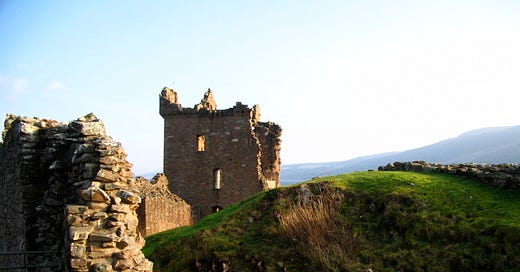So first of all the where. In The Empty Places was an anthology I co-edited back in 2016 with the aim of raising funds and awareness for Bantuan Coffee, a charity that helped the victims of child prostitution in Indonesia. It brought together writers and artists from around the world, some translated into English for the first time. I’m proud of that book, and the small contribution it made to an issue too big to properly comprehend. It sold out completely (I can’t remember the print run, but it was enough to make me worry that we’d have boxes of the stuff kicking around) but we never managed to have any actual launch events which was a shame. It was a good experience that I’d like to repeat now I’m older, wiser, and have a bigger address book. I love anthologies. Many of the writers I’ve been posting about in my monthly “reads” articles I discovered in short story or essay anthologies and followed up on them, Porochista Khakpour being the latest. It’s a shame the book isn’t still available but also that’s kind of the point of these anthologies - they are snapshots of a time and place.
Fyann was my contribution, a cheeky bit of self-nepotism including a story of my own. It was the first SF piece I ever published. I’ve been a lover of science fiction since I was a child pulling my dad’s “golden era” paperbacks off the shelf, and I regularly work with Shoreline of Infinity, the Edinburgh-based international journal of SF, but I’ve written very little in the genre. This, another short story published by SoI, and a half-finished novel that I’ll get round to finishing one day. Not much for 30+ years of reading the genre.
Fyann has been through various incarnations. It began as chapter one of something longer, a fact that can be seen in the open ending. It has been an abandoned screenplay, an outline for a graphic novel, a bunch of things. The graphic novel is the idea that’s stayed with me the longest. I know the full arc of the story, the setting, the backstory, if I could find an artist up for a collaboration I’d jump at it.
The setting - I’m not sure how clear it is from the story - is Loch Ness, drained of all water. Since childhood I’ve been fascinated with the idea of pulling all the water off the world and getting to explore the ocean beds, all those sunken ships, canyons and caves, mountain ranges we only know through sonar. A bad idea environmentally of course, but a dream nonetheless. Fyann grew out of that initial idea and a trip to Urquhart Castle with Minori and her family in 2010. A pretty castle on the lochside becomes something more menacing when you take the water away and turn it into a clifftop pile.
The story is visually vivid for me. I’m usually not so cinematic or all that “action” in my writing, preferring characters interacting, the back and forth of an argument, exposition and character development through natural conversation, the weight of a single gesture, the crux left unsaid, but sometimes an idea comes that is so rooted in place and event that I can’t let it go. This is one of those. Probably why I think it would work so well as a graphic novel - images and a few stark sentences, a thousand words and all that. Maybe one day.







Hi Ian. What a fascinating start to what will surely be a great SF story. I also love SF. I've explored the genre mostly through the visual media, but I have enjoyed reading some books by Philip K Dick. He wrote so many SF classics which have become great movies. You can read more here:
https://cjryall.com/author-blog/the-man-in-the-high-castle
I've also read SF stories by Richard Matheson, my favorite being I Am Legend. The movie was awesome. While I love the idea of a post-apocalyptic world, I'm not at all interested in zombies though. World War Z was okay, because it was so well done, but zombies leave me cold.
Like you, I'm more interested in human interaction, and scenarios in which characters are faced with particular obstacles to overcome, etc. How would this antagonist react to that challenge? The Stand, by Stephen King, is probably my favorite book in this genre. The Road, by Cormac McCarthy was rather bleak, but intriguing, and mostly character based.
I saw Waterworld, but what you wrote sounded more visually appealing (to a reader) - a world without water. i.e. The oceans have dried up and you're left to wonder what one would find on the vast ocean beds. Imagine the canyons and caves, ridges and mountain peaks. Atlantis? Who knows? Sunken cities for sure. I read recently about a Spanish town that re-emerged from a lake during a drought.
One thing I'm working on, similar to you, is an SF novel involving a bunch of characters from different countries. One of the ideas I had was also massive drought (bizarrely based on the cover of an album by Midnight Oil - an Aussie band, which showed an empty Sydney Harbour next to the ruins of the Harbour Bridge and the Opera House). Hence the quest to find water was a daily one. My mind keeps on working over different options for how that could work. Check out my blog on this topic (of a drought-stricken Sydney in a post-apocalyptic world) here:
https://cjryall.com/author-blog/category/postapocalyptic-sydney
Anyway, great to read this latest piece from you, and to hear about your ideas. Have a great week. Best regards, Chris